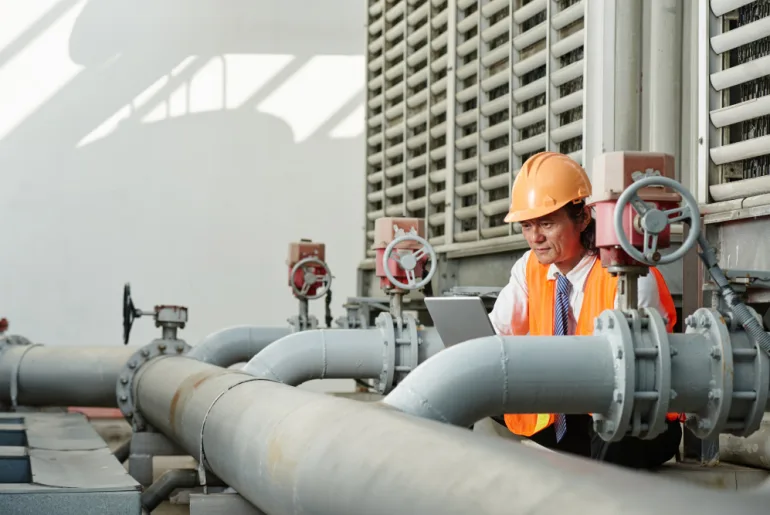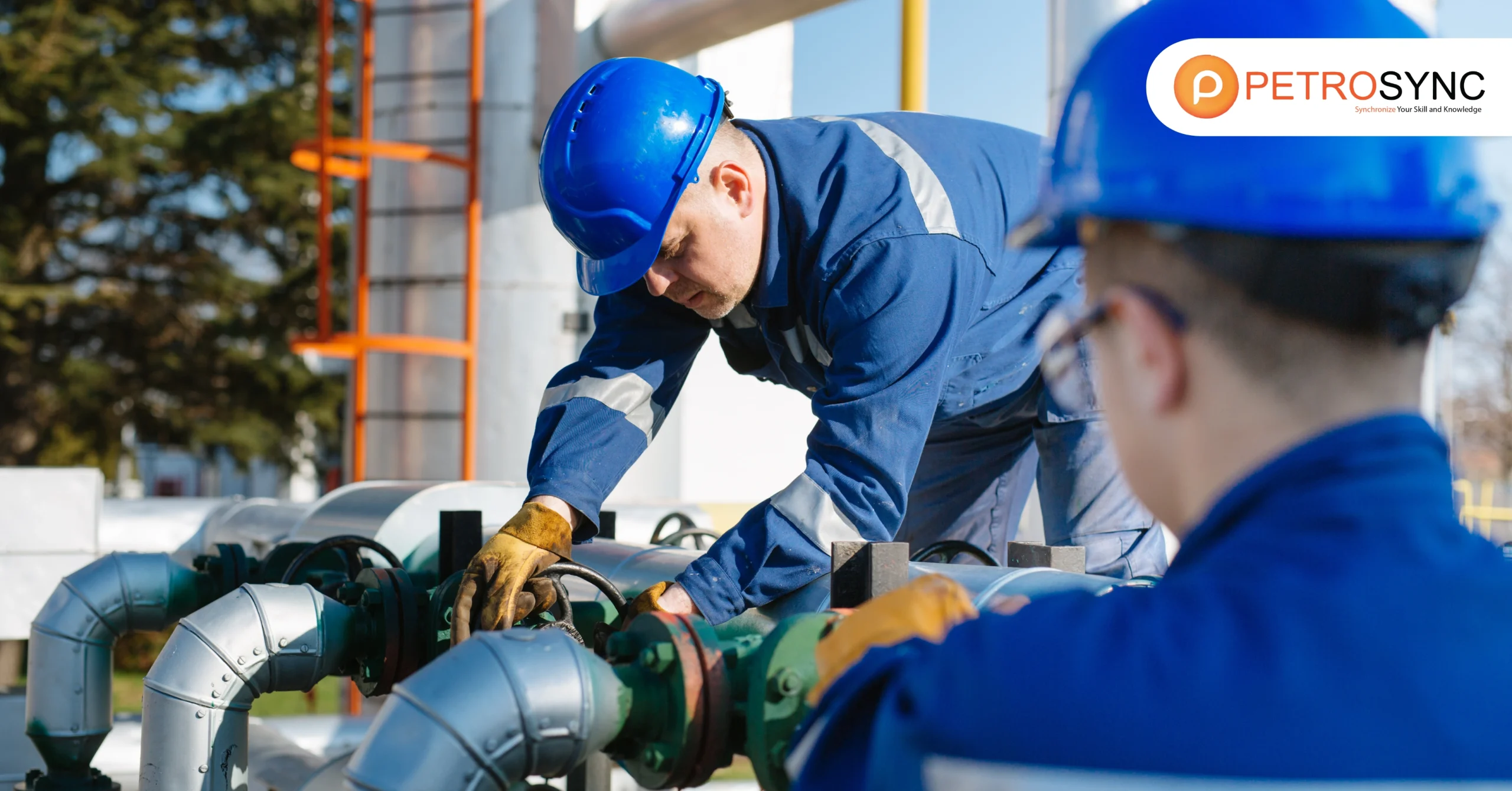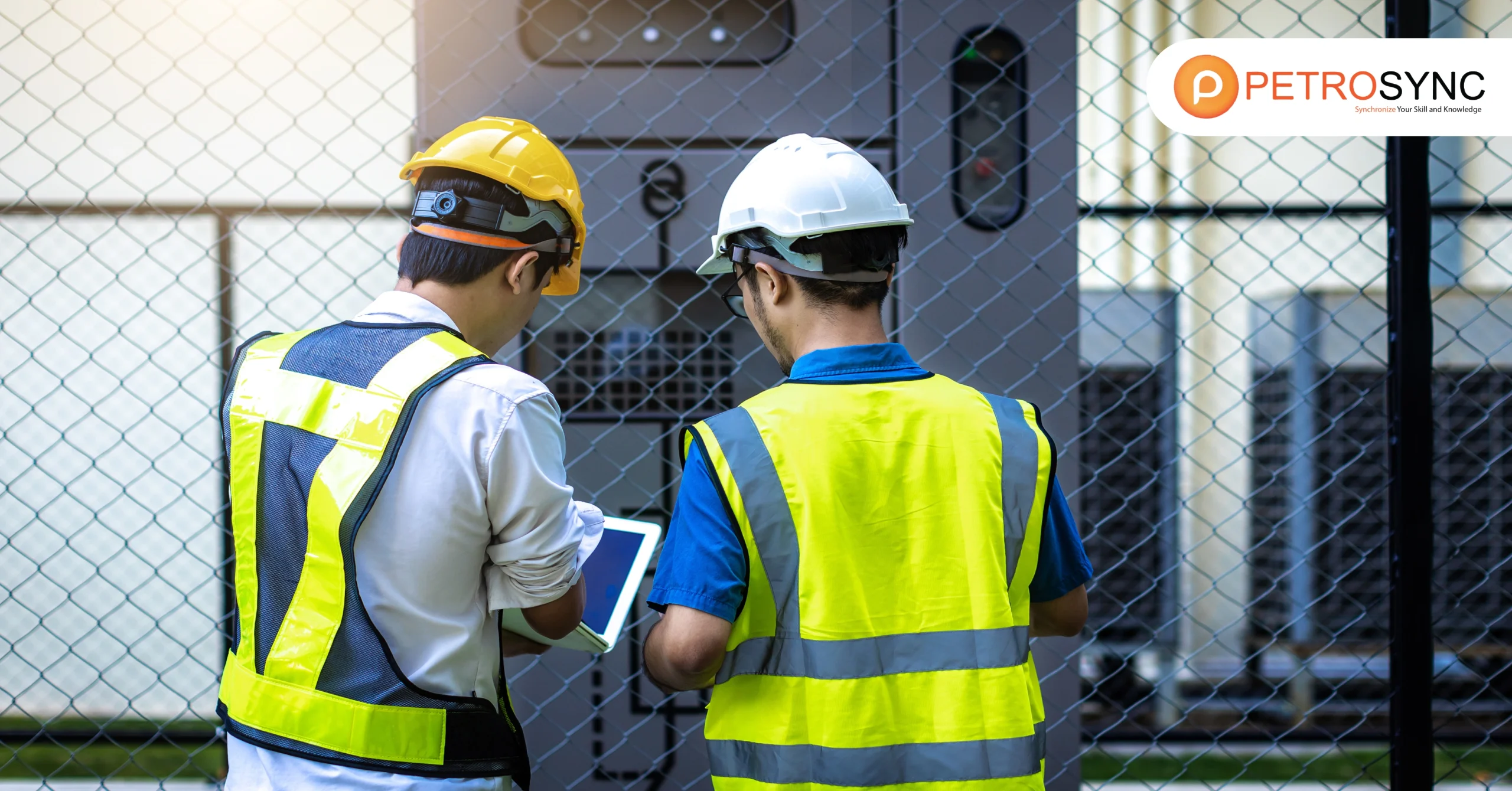The Piping Inspection Code 570 by the American Petroleum Institute (API), which focuses on the inspection, repair, alteration, and rerating of piping systems in operation, enjoys global recognition and widespread confidence.
As a result, any engineers holding API 570 Piping Inspector certification are highly valued as piping inspectors. They have knowledge of industry best practices, and their ability to ensure the integrity and safety of piping systems within the petroleum and chemical process industries are validated.
What Is API 570?
API 570 is or Piping Inspection Code: In-Service Inspection, Repair, and Alteration of Piping Systems, is an inspection standard developed and published by the American Petroleum Institute. Its responsibilities include inspecting, repairing, modifying, and re-rating in-service pipe systems.
Its primary objective is to ensure the safe and reliable operation of piping systems in the petroleum, petrochemical, and natural gas industries. API 570 covers all aspects of piping integrity, from routine inspections to corrective actions in the event of a recognized fault.
The standard applies to both aboveground and subsurface plumbing, guaranteeing that systems maintain safety and performance standards throughout their operation. The API 570 code provides a number of inspection methods and methodologies, including visual inspections, thickness measurements, pressure testing, and corrosion assessments.
It also establishes inspector credentials, which require a full understanding of the code as well as the ability to accurately assess the state of plumbing systems.
How Is API 570 Latest Edition Update?
The API 570 standard is constantly updated to reflect new discoveries, technical advancements, and evolving industry requirements. Significant changes have been made to its most current edition, issued in [specified year], which will have a direct impact on how experts check and maintain piping systems.
Understanding these developments is critical for maintaining compliance and improving the safety and efficiency of operational procedures. One of the most important additions to the most recent edition is improved guidance for risk-based inspection (RBI) approaches.
This is especially relevant because RBI has become the favored method at many facilities for prioritizing inspections depending on the likelihood and severity of failure. The most recent edition includes additional in-depth information regarding the RBI and how it can be efficiently integrated into existing inspection systems.
Another noteworthy change is the increase of the corrosion under insulation (CUI) inspection requirements. Given that CUI is one of the top causes of pipe failure, the modified API 570 emphasizes early detection and proactive management of the problem. This offers recommendations on more effective non-destructive testing (NDT) procedures for detecting CUI before it causes system problems.
The upgrading emphasizes the need of digital data management and integrating inspection results into plant-wide systems. This allows for more efficient monitoring of plumbing issues and improves decision-making procedures for repair and replacement. API 570 training provides professionals with a comprehensive understanding of these updates.
Allowing them to implement the most recent best practices in their industry. Keeping up with the latest innovations is crucial for ensuring compliance, optimizing operations, and preventing costly unscheduled shutdowns caused by plumbing concerns.
What Is API 570 Training Course Overview?
PetroSync deeply understands that process piping systems are vital assets in the process industry. Our five days piping inspector training course that is based on API 570/574, API RP 577/578, ASME B16.5/B31.3, and ASME BPVC Section V/Section IX standards aims to enhance the understanding of fitness-for-service principles for evaluating the deterioration of in-service piping systems.
Led by Mr. Chintamani, who possesses extensive experience in facilities inspection and employs practical coaching and mentoring methods, this course not only prepares you to confidently pass the API 570 examination but also deepens your appreciation for piping facilities. By broadening their technical knowledge, you can prevent unplanned shutdowns and reduce expenses effectively.
What Is API 570 Training?
API 570 training provides professionals with the technical knowledge and practical skills required to inspect, repair, and rerate pipeline systems in accordance with the API 570 code. This program, given by renowned training providers such as PetroSync, is intended for persons seeking API 570 pipe inspector certification, as well as engineers, maintenance personnel, and inspection teams working with in-service pipe systems.
During the training, participants learn about key topics such as:
- Piping system components and materials – Understanding the materials used in pipelines and their behavior under different conditions.
- Inspection techniques – Learning how to perform accurate visual inspections, thickness measurements, and pressure tests.
- Corrosion mechanisms – Identifying the various forms of corrosion that can affect piping systems and determining the best methods to prevent or mitigate them.
- Repair and alteration guidelines – Reviewing the procedures for making repairs or modifications to piping systems while maintaining compliance with API 570 standard.
- Safety and compliance – Ensuring that all actions taken meet the safety regulations and industry standards, and that the system remains reliable.
API 570 training equips professionals not only to pass the API 570 certification exam, but also to use their knowledge in real-world scenarios. Participants learn how to assess inspection data, identify potential issues, and recommend suitable actions to ensure the safety and integrity of piping systems.
For those looking to elevate their careers in the oil and gas industry, especially in roles related to asset integrity, maintenance, and inspection, API 570 training is invaluable.
With programs like those offered by PetroSync, professionals can help their organizations avoid costly downtimes, enhance safety, and ensure compliance with industry regulations.
What Is API 570 Training Course Outline?
The outline regarding PetroSync’s API 570 training course is listed down below. For a more detailed and complete outline, you can refer to PetroSync’s API 570 training course brochure.
Day 1
Benchmark Quiz Introduction to API 570 Certification
ASME B31.3 Process Piping
- Scope and applicability
- Service/Fluid Classification
- Joint Quality Factors
- Allowable stresses
- Design for Internal Pressure and Design of Permanent Blanks
- Impact Testing for Low-Temperature Service
- Acceptance of Impact test results
- Welding requirements-Preheat Temperatures
- Post Weld Heat Treatment
- Hardness Testing after PWHT
- Inspection and testing
- Non-Destructive Examination Requirements
- Acceptance Criteria
- Leak testing-Hydrostatic
- Leak testing-Pneumatic
- Precautions during Pneumatic test
- Service leak test
- Thermal Expansion of Piping-Table C1
ASME B16.5 Pipe Flanges and Flanged Fittings
Day 2
ASME B16.5 Pipe Flanges and Flanged Fittings
- Scope
- Pressure Temperature Ratings
- Materials
- Dimensions
- System Pressure Test
API 570 Inspection, Repair, Alteration, and Rerating of In-Service Piping Systems
- Scope & Definitions
- Owner/user inspection organization
- API-authorized piping inspector qualification and certification
- Inspection and testing practices
- Risk-based inspection
- Preparation for inspection
- Inspection for specific types of corrosion and cracking
- Types of Inspection and Surveillance
- Thickness measurement locations
- Thickness measurement methods
- Inspection of welds in-service
- Inspection of flanged jointsflanged joints
Day 3
API 570 Inspection, Repair, Alteration, and Rerating of In-Service Piping Systems
- Frequency and extent of inspection
- Piping service classes
- Inspection intervals
- Extent of visual external and cui inspections
- Inspection data evaluation, analysis, and recording
- Corrosion rate determination
- Maximum allowable working pressure determination
- Repairs, alterations, and rerating of piping systems
- Welding and hot tapping
- Inspection of buried piping
- Types and methods of inspection
- Frequency and extent of inspection
- Repairs to buried systems
Day 4
ASME Boiler and Pressure Vessel Code Section IX Welding and Brazing Qualifications
- Review of a WPS and PQR
- Determine if WPS and PQR are in compliance with ASME Sec. IX
- Essential and Nonessential Variables
- Determine that the number and type of mechanical tests are correct tests
- Determine whether the results are acceptable
ASME Boiler and Pressure Vessel Code Section V Nondestructive Examination
- Article 1, general requirements
- Article 2, radiographic examination
- Article 6, liquid penetrant examination
- Article 7, magnetic particle examination (yoke and prod techniques only)
- Article 9, visual examination
- Article 10, leak testing
API Recommended Practice 574
- Inspection of piping, tubing, valves, and fittings
Day 5
API RP 571 Damage Mechanisms in the Refining Industry
- Brittle Fracture
- Thermal Fatigue
- Erosion/Erosion Corrosion
- Mechanical Fatigue
- Vibration Induced Fatigue
- Atmospheric Corrosion
- Corrosion Under Insulation (CUI)
- Boiler Water Condensate Corrosion
- Flue Gas Dew Point Corrosion
- Microbiological Induced Corrosion (MIC)
- Soil Corrosion
- Sulfidation
- Chloride Stress Corrosion Cracking (ClSCC)
- Caustic Stress corrosion Cracking (Caustic Embrittlement)
- High-Temperature Hydrogen Attack (HTTA)
Is There Any API 570 Certification Issued by API?
Yes, there is an API 570 certification issued by the API. The API 570 certification is an Individual Certification Program tailored for engineers inspecting, repairing, modifying, and maintaining piping systems within the petroleum and chemical process sectors.
The API 570 certification serves as evidence of your expertise and proficiency in conducting inspections and safeguarding the integrity of piping systems in compliance with API standards.
Before attending the API 570 examination, you are strongly advised to enroll in the API 570 training course by PetroSync. The training provides essential knowledge and skills required for engineers. Our training course ensures that participants are well-prepared and equipped with the necessary understanding of all related API standards and practices while increasing their chances of success in the API 570 certification exam.
Who Should Attend the API 570 Training Course?
The training course is designed to be advantageous for but not limited to engineers, supervisors, and managers from the following discipline:
- Mechanical Engineering
- Inspection
- Maintenance & Operations, Technical & Engineering, and QAQC.
PetroSync API 570 Training: Advance Your Piping Inspection Skills
PetroSync’s training course is particularly beneficial for you with 2-3 years of experience managing and planning inspection and maintenance activities for piping systems in upstream oil and gas facilities, refineries, process plants, and petrochemical facilities. We advise you to prioritize undertaking API 570 training due to its immense benefits.
API 570 prep course by PetroSync helps engineers to get a deeper understanding of the codes, regulations, and best practices necessary for effective piping system management. By having knowledge of API 570/574, API RP 577/578, ASME B16.5/B31.3, and ASME BPVC Section V/Section IX standards along with API 570 Body of Knowledge, engineers can effectively optimize the performance of piping systems and get ready for the API 570 examination. Enroll in PetroSync’s training course and empower yourself with the necessary expertise to excel in piping systems with PetroSync!
Credit header image: Freepik.com

Results-oriented and thorough SEO specialist with extensive experience in conducting keyword research, developing and implementing digital website promotion strategies and plans, managing campaigns to develop company websites in the digital world, excellent knowledge of marketing techniques and principles, and attentive strong attention to detail.







